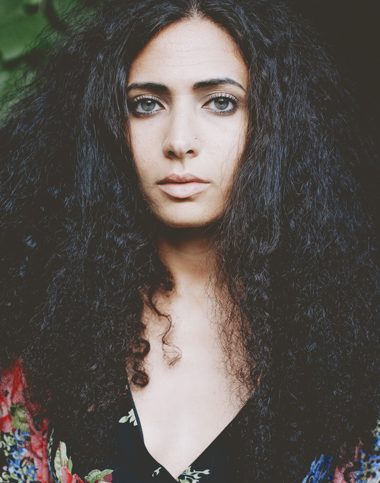Home may be where the heart is, and while Hala Alyan is fortunate to call many different cities home, the Palestinian-American poet who’s work has appeared in numerous journals including The Missouri Review, Prairie Schooner and Colorado Review evidently has her heart scattered all around the world and pointedly acknowledges this in her writing. In addition to a background in psychology, Hala is the author of two poetry collections, “Atrium” (Three Rooms Press), which was awarded the 2013 Arab American Book Award in Poetry, and “Four Cities,” published by Black Lawrence Press. Her latest collection, “Hijra,” was recently selected as a winner of the 2015 Crab Orchard Series in Poetry and will be published by Southern Illinois University Press. Her hauntingly beautiful, emotional poetry especially touches and revisits the everyday preciousness and perils of the region, proving the theory that you can take the soul out of the Middle East, but can never take the Middle East out of the soul.
What do you love about poetry?
Poetry feels like home. There is something comforting about the construction of a poem, the pleasure of watching the images and narrative emerge. When it comes to reading poetry, I love the glimpse it grants me into another’s mind—that visceral authenticity.
How does your life experiences and education influence your works?
Much of what I write is directly shaped by my experiences: love, travel, family, and loss. Being a psychologist means I’m primed to pay more attention to things like interpersonal quirks, relationships, the intricacies of healing, etc. In that sense, my training and education has helped me become a more alert poet, and being a writer has made me a more mindful clinician.
How do the cultures in your life, (places you’ve lived and cultural background) influence your works?
Being a member of diaspora has made me more cognizant of space, the things we do to feel at home, either in our surroundings or within ourselves. I think this is why much of my writing emphasizes cities, displacement, and small encounters in time with strangers, as well as more introspective moments. I think these experiences have made me more attuned to my setting and the tiny moments that flit within it.
What do you find most different about life inside and outside the Arab world and how does it affect you?
I find life in the Arab world, particularly in Beirut, to feel more vibrant at times. Perhaps it is because of the chaos or intensity or political turmoil, but I’m usually more aware of being alive when I’m back there. On the other hand, I think I generally feel less stressed in the US, probably for the same reasons. Either setting impacts my writing, making it either more urgent/frenetic/sharp or languid and unhurried.
What is your family’s heritage?
Syrian, Lebanese and (mostly) Palestinian.
Do you still have family and friends living in the Middle East?
Yes, though everyone’s quite scattered. I have people in Beirut, Abu Dhabi, Dubai, Amman, and Doha.
What were the circumstances under which you/your family left your home country?
My parents were living in Kuwait when I was born, and we remained there until the invasion in 1990. After that, we fled to the United States for a number of years before returning to the Arab world.
Where else have you lived?
Cyprus, Oklahoma, Texas, Maine, Al Ain, Tripoli, Brummana, Beirut and Manhattan.
How does your current habitat affect your writing?
For whatever reason, I’m more productive in cold weather (perhaps because there’s less distractions). So the New York winters are actually quite useful for getting things done. A mug of green tea, my laptop and a window—that’s all I need!
Where will you eventually retire?
I wish I knew! Ideally somewhere in the Arab world, near the sea.
Finish this sentence: When I die, I will…
… have loved.
Follow Hala and discover her works at www.halaalyan.com.











